We say that it flies, and other times we say it stands still. We might be tricked by time, but our mixed perceptions of it have scientific roots.
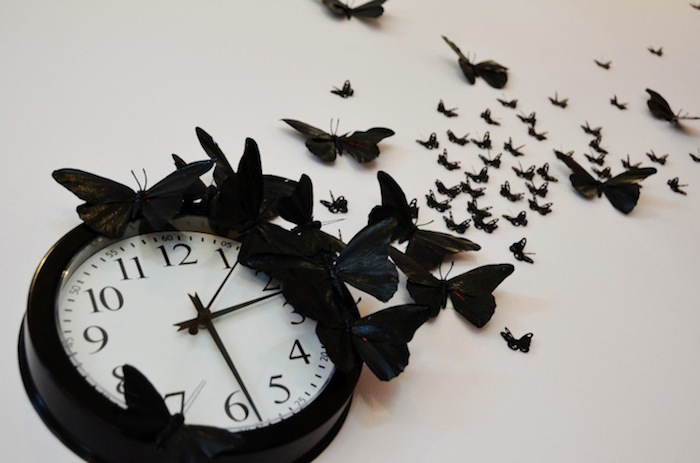
Ever felt like time stands still while you’re waiting for something, or that as you get older, the years slip through your fingertips with much more ease? With swaths of tech around us and virtually everything being available on demand, it’s a very real possibility that our body clocks and perception of time have changed.
Time Doesn’t Fly
As the adage goes, “Time flies when we’re having fun”. In reality, though, we know fully well that it does not. Nevertheless, psychologist James J. Kellaris conducted his own experiment to find out whether there’s any truth to the aphorism. Kellaris had people listen to a piece of music they liked, and when he later asked them how much time they thought had passed, the listeners’ estimates were usually longer.
Kellaris suggested that when we’re enjoying ourselves, we pay more attention to the event and our minds perceive that as extra time.
That’s how we get the saying ‘Lost in the music’. On the other hand, the adage might lend itself to a self-fulfilling prophecy: if we believe that time is meant to fly when we’re having fun, we’re more likely to think we’re enjoying ourselves when it passes faster.
We’re Tricked by Tech
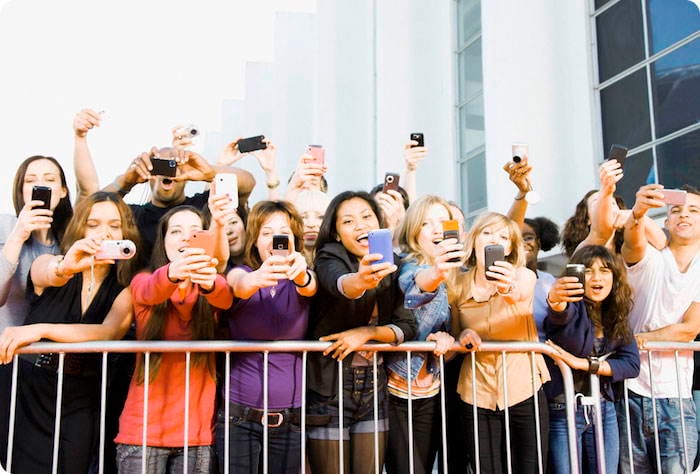
As if we didn’t warp time enough on our own, a recent study has suggested that technology, too, is capable of altering our perception of time. In a world where we lead virtual and physical lives, it is hardly surprising that social media sites lend themselves to becoming veritable time sucks.
A 2012 survey carried out by the clever folks at Cisco revealed that 60% of 18-30 year-olds check their smartphones compulsively for updates, with each glance taking with it bits and pieces of the day.

Source: Social Media Club
Stanford University psychologist Dr. Phillip Zimbardo thinks that this newfound obsession with the ‘right now’ moment has altered our idea of time. Having so much information readily available at our fingertips speeds up our internal clock. Likewise, each time we check Facebook or log in to Twitter, we subconsciously note the time, making us more aware of how much of it has passed in our day-to-day habits. Talking to the Huffington Post, Zimbardo said that “Technology makes us impatient for anything that takes more than seconds to achieve.”
Moving in Slow Motion

We’ve all seen thrillers where actors walk away from an explosion in slow motion for dramatic effect, but these slow-mo moments might also be experienced outside the of the silver screen. In life-threatening or dangerous situations, people often say that time seems to slow down, and there’s a fairly logical reason why.

Source: Wallpaper Art
In 2007, a group of psychologists carried out a test where people fell 50 meters into a safety net and then were asked about their experience. Aside from being obviously terrified, researchers found that the test subjects recalled the experience as longer than it actually was, largely due to the way our bodies respond to danger. The adrenaline we produce allows us to concentrate better when in a life-threatening situation so that we can stay alive.
As a result, everything seems to pass in slow motion because we remember far more details over a short period of time.
Speeding Up With Age
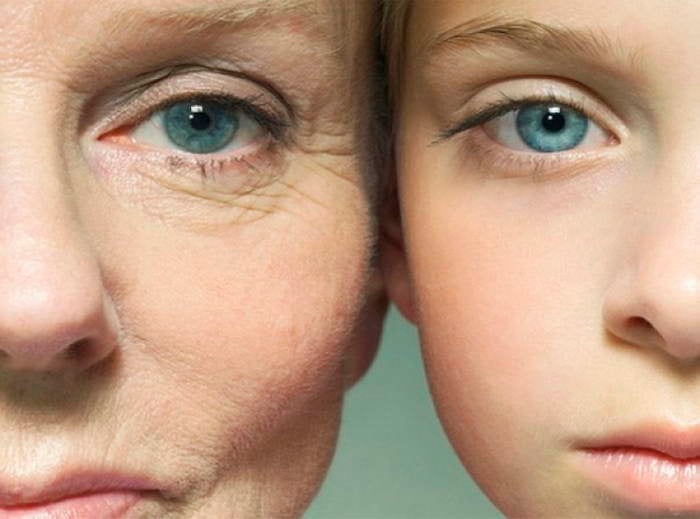
Source: The Daily Mail
It’s commonly said that as we get older, time passes in the “blink of an eye”. Aside from the part that technology plays in speeding up our understanding of time, another factor affects our perception of time as we get older, and it’s something we can’t really change.
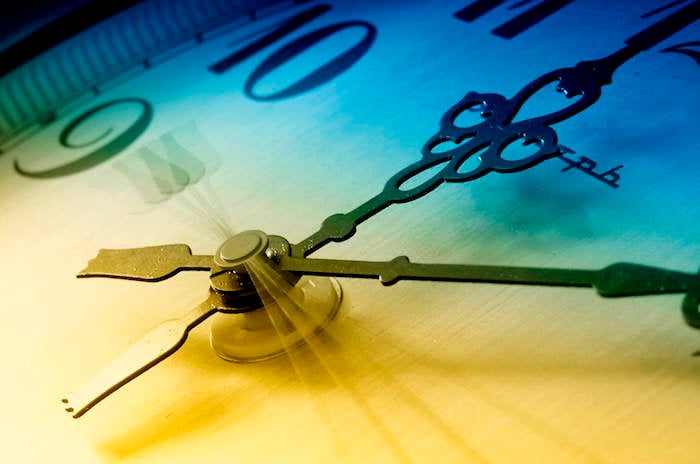
When young and fresh-faced, we’re constantly discovering new and exciting things that we’ve not experienced before, and we naturally pay a lot more attention to them. As we get older, though, those “new” experiences grow pale. By extension, time seems to pass more quickly. Interestingly, a study carried out in 1997 by Mangan and Bolinsky went some way to proving that older people really do perceive time differently. While people in their 20’s could guess when three minutes had passed fairly accurately, those in their 60’s overestimated the time elapsed by about 20%, giving some credence to the idea that time really does speed up with age.
Afternoon Naps

Source: Wallpapers For
One of the smallest but most enjoyable pleasures in the world is the humble afternoon nap. A quick, 20-minute power nap can revitalize us just enough to carry on with the rest of the day, but any longer than that and our ability to tell the time goes out the window.
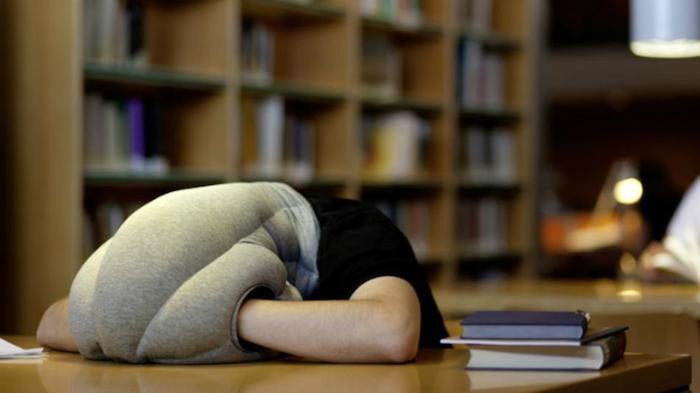
Source: The Julian Experience
When we’re tired, our perception of time goes completely off-kilter. That’s because when we’re sleep-deprived, our brains just can’t keep up with discerning between short and long stretches of time. The length of time we nap is also key to how our mind keeps time. After 20 minutes of napping, we enter something called slow-wave sleep.
If you break the wave mid-way through, it will take a while for you to accurately perceive time again, which is precisely why they call it a 20-minute power nap.
Time Stands Still
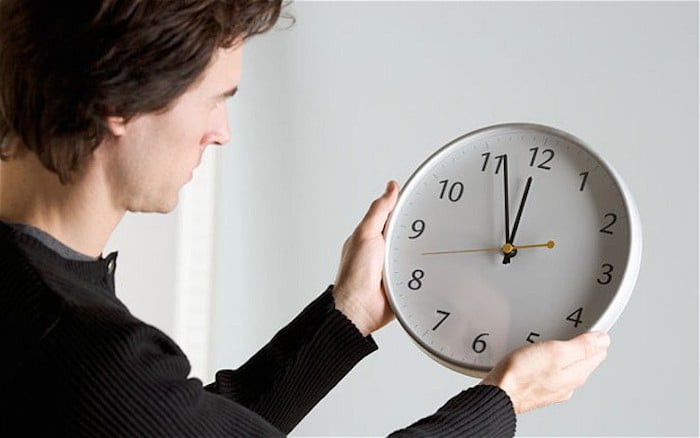
Source: The Telegraph
Remember watching the clock in high school and waiting for the bell to ring? If it felt like time was standing still, that might be because your brain genuinely thought it was. The “optical” illusion of time standing still is something that happens when our eyes move quickly from one point to another.
According to Kielan Yarrow and a whole host of other psychologists, when our gaze fixes suddenly on the second hand of a clock, our perception of time stretches slightly backwards to compensate for that movement. As a result, your mind tells you that you’ve been looking at the second hand for longer, and thus fills in the blank with what it thinks should be there.
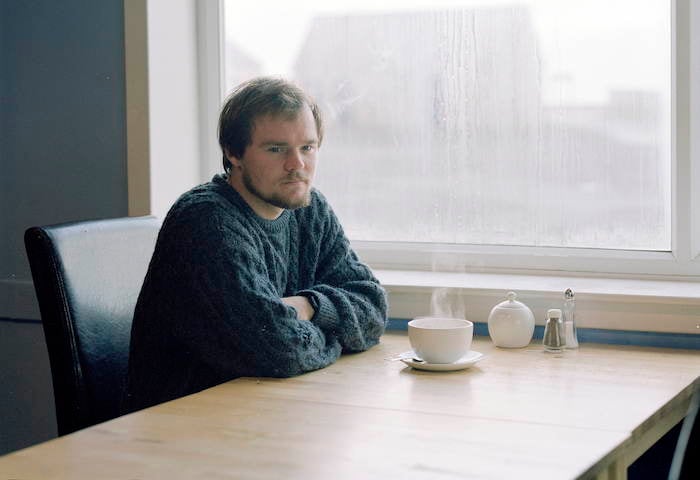
Source: Toma Shein
Getting Emotional

Source: Hire Imaging
Many like to think that they’re not ruled by their emotions, but they do affect our bodies more than you think—at least in terms of how we perceive time. At the bottom of a long list of ways in which our brain is constantly finding new ways to trick us, negative emotions, in particular, can wreak havoc on our time-keeping abilities. While boredom can make time seem to stand still, just about any emotion will change how fast or slow the time goes—especially anxiety.

Source: eHarmony
For a few years now, psychologists have carried out studies on the subject and have concluded that individuals experiencing negative emotions concentrate more on the passing of time than those who are in a good mood, which makes a particularly anxiety-filled moment seem longer.
That might explain why after we argue, the room’s tension-ridden atmosphere makes time seem to drag on and on.




